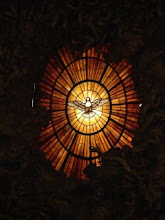Puno is a small, quiet town with not much to do besides visit the lake. While we were there, there were political rallies in the plaza, and that was also interesting to hear the speeches translated to three different languages.


(Of course the police are nearby, just in case)
We decided to take the one-day tour of the islands, which included stops in the Uros islands and Taquile. The Uros islands are about sixty floating islands made from straw. It was strange trying to walk around on the island because it would sink with each footstep. My friend actually took a step at a weak point and made a hole in the island. We then took a ride on a traditional boat to a second island.

The president of the island demonstrates how the islands are created

Our transportation

Island number two

On the boat headed for our next stop
The next stop was Taquile. Taquile is known for weaving - the women make tapestries and the men knit their own hats.




After Puno, we crossed the border to Bolivia. We spent a few days in La Paz, the largest city and administrative capital of the country. We happened to show up during their carnaval, so we got to watch the parade featuring tons of different dances from the country.

The view from our hotel room - La Paz is known for being extremely mountainous

The no-fun zebras in the Carnaval parade

One of the younger dancers
We also took a daytrip to the ruins of Tiwanaku, which is known for its giant monoliths and for being a special place to receive energy from the sun.

Our guide receiving energy from the sun

One of the giant monoliths
Cochabamba, the next stop, was not at all as expected. I had heard it was a great city, but when we were there it was rainy and there wasn´t really much to do.

No comments:
Post a Comment